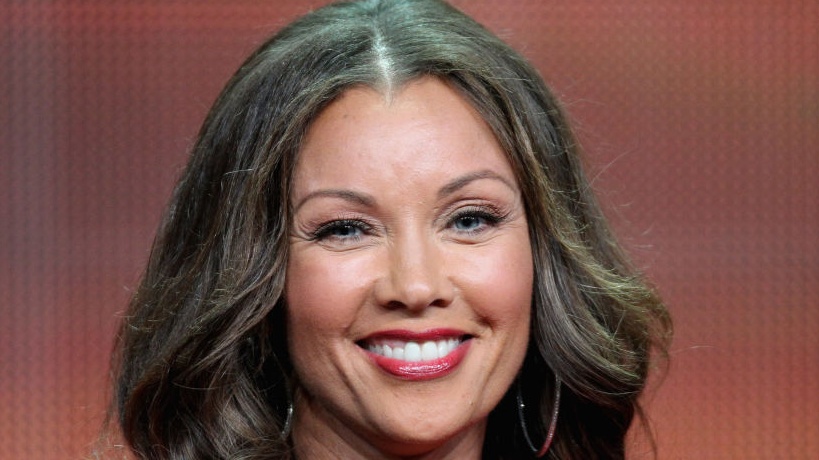Former Miss America, actress and Grammy-nominated singer Vanessa Williams angered some white people for performing the Black National album during a televised Independence Day celebration, The Wrap reports.
When news broke over the weekend that her pre-recorded performance of “Lift Every Voice And Sing” along with “Star-Spangled Banner” would air during PBS’ 41st annual A Capitol Fourth, many were angered over the singer’s song selection.
Williams, who hosted the program in the past, said the song was a great way to honor Juneteenth, which became America’s newest holiday when President Joe Biden signed the bill into law on June 19.
“It’s in celebration of the wonderful opportunity that we now have to celebrate Juneteenth. So we are reflective of the times,” she told the Associated Press on Thursday.
“We are reflective of the times and I’m happy to be part of a tremendous show that the producers are aware and willing to make the changes that have happened within the past year and a half,” she added.
While Williams' intentionality was to share some of the Black experience with the PBS audience, many were not trying to hear “Lift Every Voice and Sing” be exalted on the Fourth of July as equal with their beloved National Anthem. Some took to Twitter to express their dismay.
A few Black conservatives were angered by the actresses' song selection.
"Vanessa honey, a BLACK national anthem is something a Black African Country would have, not a country like America that exists for everyone,” Lavern Spicer, a Black Republican candidate for Florida's 24th Congressional district, tweeted on Saturday.
Vanessa honey, a BLACK national anthem is something a Black African Country would have, not a country like America that exists for everyone ????????????????♀️ https://t.co/ZLt8kZLRSU
— Lavern Spicer (@lavern_spicer) July 3, 2021
Some were unaware of the history of "Lift Every Voice and Sing."
THIS IS BAD. Different Races will have their own holidays? Their own Anthems? The new SEGREGATION. Vanessa Williams to sing 'Black national anthem' for Capitol Fourth celebration https://t.co/XBHuGwiFH6
— Greg Kelly (@gregkellyusa) July 3, 2021
There’s only one National Anthem that covers everyone. It doesn’t matter what color you are. ????????https://t.co/FAsZjZIf6Q
— Tony Paul (@TonyPaul45) July 4, 2021
Although she had many detractors, she had just as many supporters on social media who came to educate those who were coming after Ms. Williams.
Vanessa Williams got the white folks MADT ???????? pic.twitter.com/pGZEc6kJb1
— Eric Targaryen-The Pfizer Papi (@mndspeak) July 4, 2021
Others defended Williams from hecklers.
I love Vanessa Williams. She’s another Black woman who was attacked by the white power structure, when she dared to traverse the white space of the Miss America pageant.
— DEFUND & ABOLISH POLICE, REFUND OUR COMMUNITIES (@BreeNewsome) July 3, 2021
Ma'am… Are you seriously trying to tell us you've never heard of "Lift Every Voice and Sing" aka "The Black National Anthem"?
And why are you going after Vanessa Williams? She isn't the one who dubbed the song with this nickname. pic.twitter.com/VTBCyGJeLh
— Trust God/practice social distancing/wear a mask (@sweetrain40) July 3, 2021
Originally composed as a poem by brothers James Weldon and John Rosamond Johnson in 1900, "Lift Every Voice and Sing" has since been a staple in Black culture since its inception. Williams' rendition of the hymn was the first time that it was sung in the 41-year history of the PBS Fourth of July celebration.
